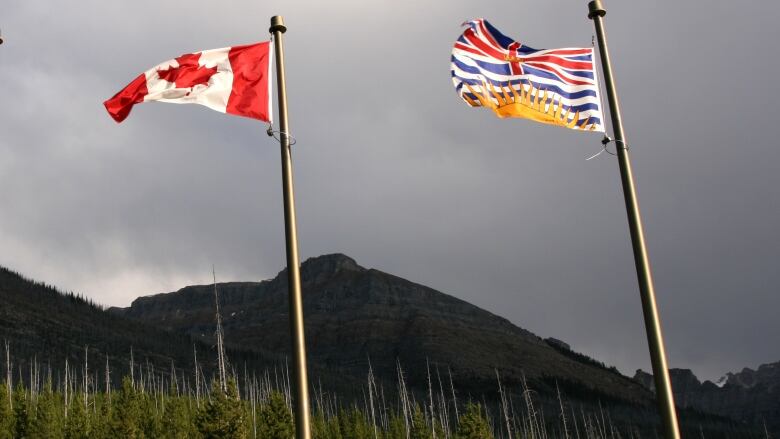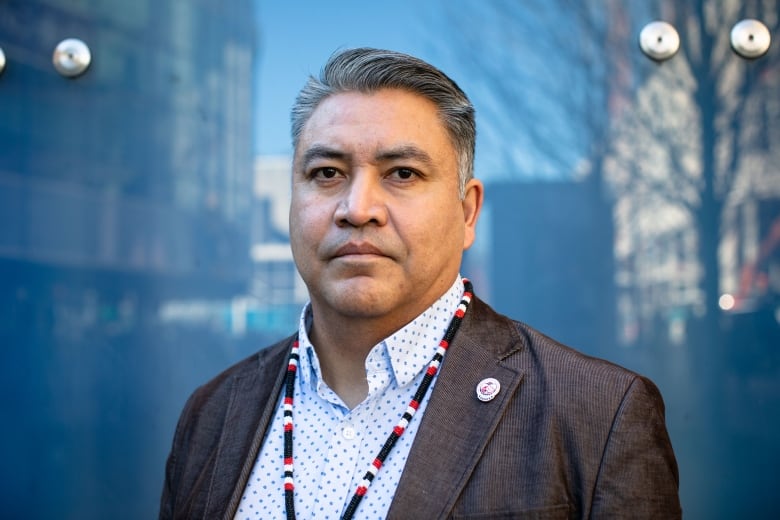Business groups applaud B.C. pausing controversial Land Act reforms
Private sector lauds B.C.'s announcement it would not proceed with proposed Land Act amendments

Several business organizations in British Columbiaapplauded the province's announcement that it would not proceed with proposed amendmentsto the law governing public land.
On Wednesday, the B.C. government said it was pausing proposed changes to the Land Actmeantto bring the law in line with provincial Indigenous rights legislation.
"We need a bit more time to help make it work and bring people in," said Nathan Cullen, minister of water, land and resource stewardship, on Wednesday.
"Misinformation was dividing people, pitting neighbour against neighbour, First Nations against non-First Nations."
The news sparked outrage from Indigenous organizations, but was welcomed by organizations representing the province's business community.
The amendments were meant toclearthe way for shared decision-making between the province and First Nations over the use of publiclandin their territories,and bring the Land Act in line with the province's Declaration on the Rights of Indigenous Peoples Act (DRIPA).
DRIPA was passed unanimously in 2019 and establishes the United Nations Declaration on the Rights of Indigenous Peoples (UNDRIP) as B.C.'s framework for reconciliation.
Prior to Wednesday's announcement, the province had hoped to bring forward a draft bill of proposed changes this spring.
TheLand Act oversees the use of Crown land, which makes up about 95 per cent of B.C.'s territory. But most of B.C.'s First Nations never signed treaties with Canada, meaning they never legally handed over land to the Crown.
'Confusion on what does vetomean'
Keerit Jutla, president of the Association for Mineral Exploration,said the proposed Land Act changes "came out a bit too fast, without a lot of clarity."
He said the plans did not ultimately grant Indigenous people "veto" over public lands as some critics have suggested but they were announced without engaging industry.
"There is a lot of confusion on what does 'veto' mean, what does 'consent' mean, and I think the real question is who has final say in this type of decision-making process?" Jutla said in an interview with CBC News.
"We want to all work together to build the system that will work for everyone in a way that keeps the industry competitive but also respects Indigenous rights.
"I hope we can work together."
Cullen told reporters the reforms did not include any "impacts to tenures, renewals, private properties or access to Crown land.'' Instead the amendments would have legally recognized decision-making agreements with First Nations, as have already been implemented under B.C.'sForest and Range Practices Actand Environmental Assessment Act.
Regional Chief Terry Teegee from the B.C. Assembly of First Nations blamed thefailure of the reforms on "misinformation" about the nature of the changes.
B.C. Conservative Party LeaderJohn Rustadcalled the bill an "assault" on "private property rights and our shared rights to use Crown Land" in a Feb. 1 release.
Opposition party B.C. Unitedsaid in a statement earlier this month that theNDPgovernment was "giving veto power to five per cent of the population with impacts to over 95 per cent of public land."
Nearly six per cent of B.C.'s population identifies as Indigenous, according to the 2021 census.
"The NDP government's attempt to bypass public engagement and scrutiny with this rushed consultation process should raise concerns among all British Columbians," the party said Wednesday. "Public land belongs to all of us, and we will fight to keep it that way."
Teegee said pausing the reforms is also a chance for the province to have "more discussions about how better to roll out legislation" in the future.
"It's disappointing certainly that we can't move ahead with these amendments which would create that space for shared decision making," Teegee told CBC News.

The fossil fuel sector also applauded Cullen's move, with the Canadian Association of Petroleum Producers(CAPP) saying in a statement Thursday that it appreciated his "dedicated efforts" to communicate with the business community.
"We agree that a pause is necessary," said CAPP president Lisa Baiton, "to ensure inclusive progress among First Nations and all stakeholders."
"We remain steadfast in our commitment to partnering with nations in Treaty 8 territory, where our operations are based, and with the B.C. government."
The Adventure Tourism Coalition said it "commends" Cullen's move, and in its own statement argued "regulations must first be established" and "further reflection and engagement" with those affected must take place if the government wants to try such reforms again.
According to Teegee, if the province doesn't live up to its pledge to eventually bring back some kind of reform, keeping the Land Act as it stands is bad for First Nations andbusinesses in the province.
"It's either that, or we go back to the status quo," he said, "which is more court litigation, more decisions that are going to be challenged.
"That's certainly a place nobody wants to be at."
With files from Matt Allen, Jackie McKay and The Canadian Press













_(720p).jpg)


 OFFICIAL HD MUSIC VIDEO.jpg)
.jpg)



























































































